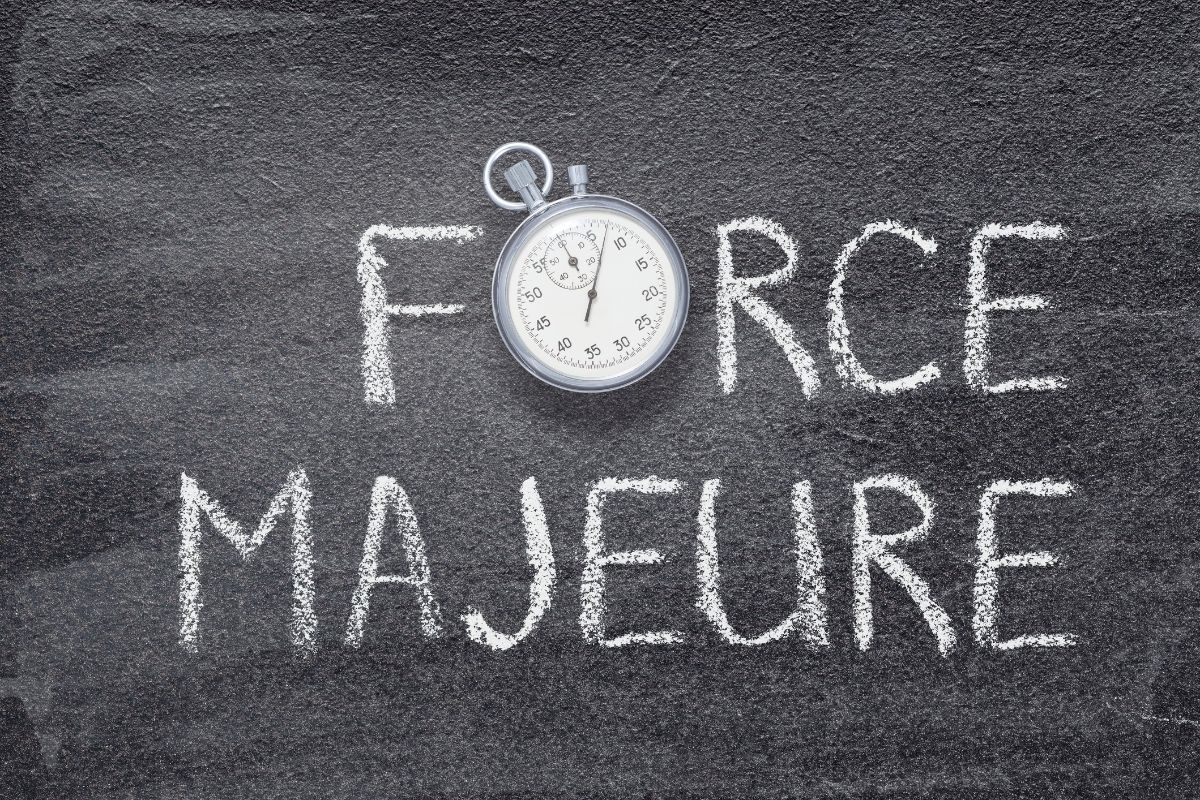The Coronavirus And The Force (Majeure)

Most contracts may not be the most interesting piece of “literature” that lawyers and law students may read in their leisure time. One clause commonly found in almost every contract, and perhaps more interesting than most other provisions of a contract, is a force majeure clause. Many legal scholars and attorneys anticipated that the coronavirus would be a circumstance that would result in the interpretation of force majeure clauses affecting the global economy.
A force majeure (“superior force”) or “Act of God” clause in a contract relates to performance and whether such performance is suspended by causes outside the control of the parties. This contract provision pertains to those scenarios that are extraordinary but not impossible. These clauses commonly appear in commercial contracts as boilerplate provisions that rarely become effective and remain untested over the life of the contract.
Historically, a contract’s performance prevented by an act of God was the primary contractual impossibility defense to excuse non-performance used in California dating back to 1900. During the 20th century, this impossibility defense was routinely included in commercial contracts as a force measure clause. In 2020, California courts define a force majeure clause is one that allocates the risk of loss of performance becomes impossible or impracticable, especially as a result of an event or effect that the party should not have anticipated or controlled.
Circumstances that may trigger a force majeure clause include labor strikes, severe weather, fires, floods, famine, and civil unrest. And a pandemic of an epic, worldwide scale.
Because of the effects of the coronavirus on everyday life, performance may be delayed or nonexistent because of human behavior that is a voluntary response to the quarantine. All over the country, various health orders issued by federal, state, and local governments that restrict social contact to protect public health are interfering with contractual duties that parties would otherwise be in a position to perform as intended.
Thus, where the coronavirus pandemic is the reason for delayed or failed performance, especially when caused by government action, force majeure clauses are likely to be triggered that excuse the performance of contractual duties.
Is important to understand that suffering some loss by performing a contractual obligation alone is not a valid reason to trigger a force majeure clause. Many commercial contracts identify or list the events that may trigger the contract’s force majeure clause. It would not be surprising to find that more than a few commercial contracts may have failed to identify a pandemic as a potential cause.
If a contract is silent on force majeure, courts look at the foreseeability of the event. In California, Civil Code § 1511 provides the causes that excuse performance. This code section requires notice to the other party or parties within a reasonable time after the occurrence of the event that prevents or delays performance. Thus, any party who determines that they will not be able to perform their obligation under a contract because of a government order must provide written notice to the other contractual parties within a reasonable time to qualify for relief under the contract‘s force majeure clause.
California law also requires that parties raising force majeure demonstrate that they made “sufficient” or “reasonable” efforts to avoid the consequences of the event, such as considering and investigating alternative methods of performance.
Like traditional law schools, CDTA’s curriculum is designed to teach students the substantive law of core subject areas. Unlike traditional law schools, CDTA emphasizes training and developing students to be capable and competent advocates in any courtroom. The California Desert Trial Academy (CDTA) is a 21st Century law school that moves students toward a successful legal career on the first day of class. We believe that practical experience in tandem with legal knowledge is the best road to a successful, rewarding, and prosperous legal career. Call us today at (760) 342-0900 or find out more online here.


